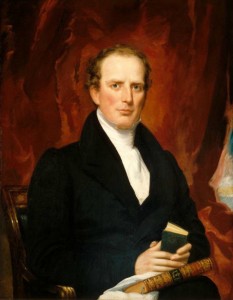One reason, I think, for the weakness of the Church today (and by Church I mean the universal Church, not any particular denomination) is the acceptance of the idea that a person can be a Christian in good standing with God while actively sinning. Sin is rebellion. How can one be in a state of rebellion and be loving God simultaneously? Yet when we teach this, we are making people comfortable in their sins, allowing them to continue in deception.
 Charles Finney spoke out forcefully against this all-too-prevalent concept, and I agree with his following comments:
Charles Finney spoke out forcefully against this all-too-prevalent concept, and I agree with his following comments:
The theory of the mixed character of moral actions is an eminently dangerous theory, as it leads its advocates to suppose that in their acts of rebellion there is something holy, or, more strictly, there is some holiness in them while they are in the known commission of sin.
It is dangerous because it leads its advocates to place the standard of conversion, or regeneration, exceedingly low–to make regeneration, repentance, true love to God, faith, etc., consistent with the known or conscious commission of present sin.
This must be a highly dangerous philosophy. . . . There can scarcely be a more dangerous error than to say, that while we are conscious of present sin, we are or can be in a state of acceptance with God.
Some people reject that analysis because it seems to say that every time one sins, one may lose his salvation. But here is the plain truth of the Scripture: sin separates from God; Jesus came to save us from [Greek word meaning “out of or away from] our sins; our salvation is not just a legal justification through the Cross but a humbling of ourselves and a changed life that makes Jesus Christ Lord of all our motives, thoughts, and actions.
Salvation is not just some technicality because you have prayed a rote prayer. Salvation is an ongoing, continuous relationship with the God of the universe. If the relationship is broken, how can that be called salvation? What have you been saved from if you are continuing in sin?
As the apostle John warned,
If we say that we have fellowship with Him and yet walk in the darkness, we lie and do not practice the truth. . . .
The one who says, “I have come to know Him, and does not keep His commandments, is a liar, and the truth is not in him. . . .
Everyone who practices sin also practices lawlessness; and sin is lawlessness. You know that He appeared in order to take away sins; and in Him there is no sin. . . .
No one who is born of God practices sin. . . . By this the children of God and the children of the devil are obvious: anyone who does not practice righteousness is not of God.
This is not a message of condemnation, but of hope. When we truly commit our lives to the Lord, we will grow in the knowledge of Him and in our ability to turn from those sins that bound us in our former life without Him. If we really know Him, sin becomes the rarity in our lives, not the norm.
